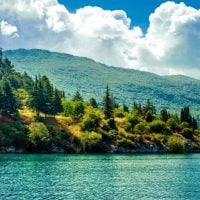Deadline: 22-Feb-22
The National Endowment for the Humanities (NEH) Division of Education Programs is accepting applications for the Landmarks of American History and Culture program to support a series of one-week workshops for K-12 educators across the nation to enhance and strengthen humanities teaching at the K-12 level.
Landmarks of American History and Culture projects (Landmarks projects) situate the study of topics and themes in K-12 humanities within sites, areas, or regions of historic and cultural significance in order to expand participants’ knowledge of and approaches to teaching about diverse histories, cultures, traditions, languages, and perspectives in the United States and its jurisdictions. Landmarks supports a series of one-week residential, virtual, and combined format projects across the nation to enhance and strengthen how K-12 educators incorporate place-based teaching and learning in the humanities. Landmarks projects offer participants:
- enhanced knowledge of content through humanistic inquiry, experiential learning, discussions, readings, lectures, and multimedia presentations
- a variety of place-based learning activities, including, but not limited to, visits to museums, libraries, archives, monuments, memorials, national parks, historic homes and buildings, walking tours, and public performances
- access to essential source materials, including primary texts, documents, oral histories, artifacts, archival resources, and digital media materials
- a community of inquiry that encourages dialogue and the exchange of ideas
- opportunities to examine and design implementation strategies; work with digital resources and tools that emphasize place-based teaching, learning, and research in the humanities; and collaborate on the creation of K-12 curricular materials
- a team of humanities scholars, including faculty with significant K-12 experience, who contribute to all phases of the program
Project Design
Each Landmarks project must include two separate sessions and accommodate thirty-six participants per session (for a total of seventy-two participants). At least three spaces per Landmarks session or six spaces total for the entire program must be reserved for teachers who are new to the profession (five or fewer years teaching experience).
Each session must be scheduled for five to seven days and projects with virtual meetings spread out over multiple days should account for five to seven days of structured study. The content, presenters, site visits, activities, and readings should be substantially the same for each session. All projects regardless of schedule and/or format—residential, virtual, or combined format— should involve guided, well-planned activities that engage all participants in substantive collegial study in the same format simultaneously.
- Residential: All participants attend for the duration of the project at the host site.
- Virtual: All participants attend for the duration of the project using an online platform. This can include synchronous and asynchronous sessions.
- Combined Format: All participants attend a portion of the project online and a portion of the project at the host site. Online and residential sessions occur at different times, but participants attend the same format simultaneously.
Funding Information
- You may request up to $190,000. NEH estimates funding 13 recipients, a total of corresponding to approximately $2,500,000 in FY 2022.
- The period of performance is 24 months, with a start date of October 1, 2022, and an end date of September 30, 2024.
Activities
Landmarks projects examine a range of topics, include multiple place types, and take a variety of forms. They may support activities such as, but not limited to:
- interpreting monuments, markers, and memorials erected across the country to consider how events, eras, individuals, and/or groups are commemorated, remembered, and engaged with at national, regional, and local levels
- in-person and/or virtual exploration of physical, natural, and/or cultural landscapes while studying art history, literature, environmental humanities, anthropology, archaeology, architecture, and other related fields
- engagement with materials and presenters at archives, museums, and historic sites when studying the events and legacies of America’s conflicts
- in-person and/or virtual site visits combined with presentations by invited speakers and work with interactive digital resources to study the places, perspectives, and legacies of American history and culture
Eligibility Criteria
- Eligible applicants include U.S. nonprofit organizations with 501(c)(3) tax-exempt status, public and 501(c)(3) accredited institutions of higher education, state and local governmental agencies, and federally recognized Native American tribal governments.
- An eligible entity may apply on behalf of a consortium of collaborating organizations. The lead applicant would be programmatically, legally, and fiscally responsible for the award.
- Eligible applicants acting as fiscal agents or fiscal sponsors may not apply on behalf of ineligible applicants.
- Individuals, foreign, and for-profit entities are not eligible to apply
- Eligible applicants may submit multiple applications for separate and distinct projects under this announcement.
- As a matter of programmatic policy, NEH will not make awards in the Landmarks program for the same project (that is, a project with essentially the same humanities topic, focus theme, and faculty team) in consecutive years, but will consider projects that are substantially different. An applicant may propose a subsequent project using the same sites, but must explore different humanities themes. For example, an applicant that led a Landmarks project during summer 2022 on “Emily Dickinson and the U.S. Civil War” would be eligible to apply for the 2023 Landmarks program with a project that instead focuses on “Emily Dickinson and Romanticism.” Project directors who are unsure about the applicability of this policy should consult with program staff.
- As a matter of programmatic policy, directors who have postponed an NEH professional development project to 2023 may not apply during this funding cycle for what would be a second project in 2023. Project directors who are unsure about the applicability of this policy should consult with program staff.
For more information, visit https://www.grants.gov/web/grants/view-opportunity.html?oppId=336540









































